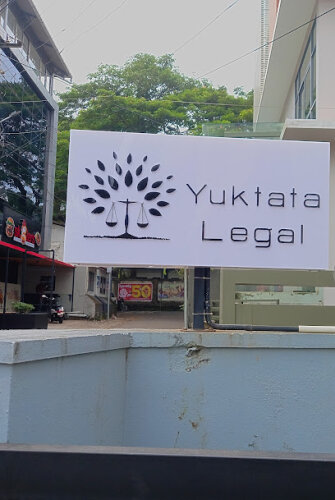Best Asylum Lawyers in India
Share your needs with us, get contacted by law firms.
Free. Takes 2 min.
Or refine your search by selecting a city:
List of the best lawyers in India
About Asylum Law in India
Asylum law in India is a developing area of law characterized by its alignment with international human rights standards but lacking a formal and codified legal framework specific to asylum seekers. The Indian government handles asylum matters on a case-by-case basis, mainly through its involvement with the United Nations High Commissioner for Refugees (UNHCR). Although India is not a signatory to the 1951 Refugee Convention or its 1967 Protocol, it generally provides asylum to foreign nationals who face persecution in their home countries based on race, religion, nationality, membership of a particular social group, or political opinion.
Why You May Need a Lawyer
Navigating the complexities of seeking asylum in India can be challenging without legal assistance. Common situations where legal help may be vital include:
- Understanding Eligibility: Determining your eligibility for asylum or refugee status under Indian policies and international norms.
- Document Preparation: Assisting in the preparation and submission of essential documents to support your claim for asylum.
- Legal Representation: Representing you in interviews or legal hearings about your asylum status.
- Appeals and Review: Providing expert guidance in case of appeals or reviews if an initial application for asylum is rejected.
- Dealing with Authorities: Facilitating communication with governmental and non-governmental organizations and navigating regulatory procedures.
Local Laws Overview
India's legal landscape for asylum seekers, though not governed by a specific asylum law, incorporates several important considerations:
- Constitutional Provisions: Article 21 of the Indian Constitution provides the right to life and personal liberty, which forms a foundational basis for considering asylum applications.
- UNHCR's Role: In the absence of a dedicated asylum law, the UNHCR is significantly involved in the registration, documentation, and protection of asylum seekers and refugees in India.
- Foreigners Act, 1946: This act deals with the entry of foreigners into India, their presence, mobility, and deportation, indirectly influencing asylum processes.
Frequently Asked Questions
What is the difference between an asylum seeker and a refugee in India?
An asylum seeker is someone who seeks international protection but whose claim has not yet been adjudicated. Once the claim is approved, the individual is recognized as a refugee.
How do I apply for asylum in India?
Typically, asylum seekers need to register with the UNHCR in India. The UNHCR assesses claims and may provide identification documents.
Can asylum seekers work in India?
Asylum seekers may face significant challenges in securing formal employment. Permission to work may be granted in specific cases, usually pending determination of refugee status.
What rights do recognized refugees have in India?
Recognized refugees in India often have the right to freedom of movement, access to basic healthcare, education, and social services, but they lack a formal legal framework providing comprehensive rights.
How long do asylum procedures take in India?
The time frame for processing asylum applications can vary widely, often dependent on the complexity of the case and the workload of the UNHCR.
Can my family join me if I am granted asylum in India?
Yes, once your asylum claim is approved, family reunification may be possible, subject to additional procedures and approvals.
Is asylum status permanent in India?
Asylum or refugee status is not inherently permanent; it typically requires periodic reviews and renewals based on the prevailing situation in the asylum seeker’s home country.
What happens if my asylum application is rejected?
If an application is rejected, legal advice should be sought to evaluate options for appeal or reconsideration.
Are there any specific legal protections for women asylum seekers in India?
While there are no specific laws dedicated solely to women asylum seekers, India adheres to principles of non-discrimination, and the UNHCR in India considers the unique vulnerabilities of women in its processes.
Do asylum seekers have access to education in India?
Refugees and asylum seekers have the right to access education in India, although practical barriers such as language and cultural adjustments may pose challenges.
Additional Resources
Support and information for asylum seekers can be obtained from various resources and organizations:
- UNHCR India: Provides registration, refugee status determination, and protection for asylum seekers and refugees.
- Indian NGOs: Organizations such as the Refugee Solidarity Network offer legal assistance and protection services.
- State Legal Services Authorities: Offer free legal aid services for indigent, marginalized, and disadvantaged sections seeking asylum.
Next Steps
If you need legal assistance for seeking asylum in India, consider the following steps:
- Contact the UNHCR office in India for initial guidance and registration.
- Seek legal advice from qualified immigration lawyers or legal aid organizations specializing in asylum cases.
- Ensure that all necessary documentation is prepared accurately and submitted in a timely manner.
- Stay informed about your rights and responsibilities as an asylum seeker in India.
- Maintain regular contact with legal advisors and the UNHCR to stay updated on your application's progress.
Lawzana helps you find the best lawyers and law firms in India through a curated and pre-screened list of qualified legal professionals. Our platform offers rankings and detailed profiles of attorneys and law firms, allowing you to compare based on practice areas, including Asylum, experience, and client feedback.
Each profile includes a description of the firm's areas of practice, client reviews, team members and partners, year of establishment, spoken languages, office locations, contact information, social media presence, and any published articles or resources. Most firms on our platform speak English and are experienced in both local and international legal matters.
Get a quote from top-rated law firms in India — quickly, securely, and without unnecessary hassle.
Disclaimer:
The information provided on this page is for general informational purposes only and does not constitute legal advice. While we strive to ensure the accuracy and relevance of the content, legal information may change over time, and interpretations of the law can vary. You should always consult with a qualified legal professional for advice specific to your situation.
We disclaim all liability for actions taken or not taken based on the content of this page. If you believe any information is incorrect or outdated, please contact us, and we will review and update it where appropriate.
Browse asylum law firms by city in India
Refine your search by selecting a city.
















